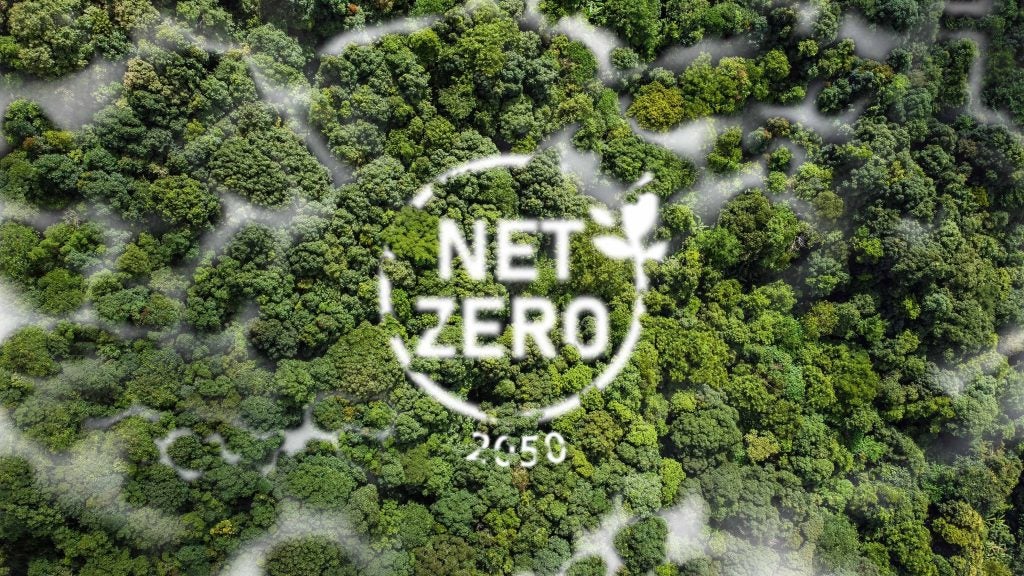
Insurers are coming under increasing pressure to help decarbonise the global economy. They should use the levers available in their underwriting and investment practices, lest disgruntled shareholders force their hands.
On 25 May 2022, protesters amassed outside the Marriott Hotel in Hartford, Connecticut, US, to call on investors in the US insurance giant Travelers to stop underwriting fossil fuels and vote in favour of two climate resolutions. As the insurer’s annual general meeting went on inside, the protestors chanted “Insure our future, not fossil fuels!” and “Travelers has a gas problem!”, unfurling a ten-foot banner reading “Travelers Stop Insuring Fossil Fuels” from the parking garage across the street. The scenes capped off a month of unprecedented climate action from shareholders in major US insurers.
Travelers faced two climate resolutions at the meeting. Non-profit As You Sow’s request for the company to report on its plans to disclose and reduce emissions passed with support from 55% of shareholders. However, impact investor Green Century Capital Management’s call for the insurer to end underwriting for new fossil fuel supplies fell short, receiving support from just 13% of shareholders.

May saw activist investors file multiple resolutions at insurers, including The Hartford and Chubb, as well as make recommendations against company directors at Chubb for failing to adequately address the business risks associated with climate change. Notable institutional investors pledged their support ahead of the meetings; New York State Comptroller Tom Di Napoli announced the state’s $279bn Common Retirement Fund would vote in favour of the climate shareholder proposals.
Across the world, leading insurers are coming under increasing pressure to do more help decarbonise the global economy. So how can they use their global influence as risk underwriters and institutional investors to better contribute to the world’s net-zero ambitions, and who are the bellwethers leading by example?
How well do you really know your competitors?
Access the most comprehensive Company Profiles on the market, powered by GlobalData. Save hours of research. Gain competitive edge.

Thank you!
Your download email will arrive shortly
Not ready to buy yet? Download a free sample
We are confident about the unique quality of our Company Profiles. However, we want you to make the most beneficial decision for your business, so we offer a free sample that you can download by submitting the below form
By GlobalDataNet-zero insurance
Insurers have an important role to play in the transition to a net-zero global economy. In recent years, the UN Environment Programme’s Principles for Sustainable Insurance Initiative (PSI) and the Net-Zero Insurance Alliance (NZIA) have promoted the concept of ‘net-zero insurance’.
So far, insurers have mainly focused their net-zero efforts on their investment and lending portfolios. Insurance has largely been seen as a tool to absorb financial shock and manage the risks associated with the physical impacts of climate change. Organisations like the PSI have worked to broaden this perspective by also looking at insurance as an enabler of economic activities. This means focusing on what assets and activities are being insured and their impacts on the environment and society.
“Insurers’ [net-zero] role is twofold,” says Pierre Garrault, policy advisor in the sustainable finance team of environmental think tank E3G. “As a risk management industry, they have a role to play in assessing, pricing and covering climate-related risks [via their underwriting practices] to contribute to climate change adaptation. As long-term institutional investors, they have a role to play in directing investments towards sustainable companies and activities – either directly or via third-party asset managers.”
The NZIA was founded in July 2021 to help the industry leverage its insurance and reinsurance portfolios to drive emissions reductions. Committing its 30 members to net-zero greenhouse gas (GHG) emissions by 2050, the organisation helps the likes of AXA, Swiss Re and Lloyd’s find ways to use underwriting and risk management to encourage their clients to reduce their emissions. That requires an understanding of how insurable risk exposures change as companies and sectors transition to a zero-carbon economy.
“There will be opportunities for insurers to enhance their value proposition," says Butch Bacani, the PSI’s programme leader, "[by] helping companies to address risks associated with new business models, working across value chains and with governments on policies and regulations that enable, or even mandate, the development of new business models to be implemented at pace.”
How the industry is doing on climate action in comparison with other financial sectors is hard to gauge, according to Garrault, as the inclusion of climate risks by financial actors is in its infancy and the concrete effects of sustainable investments are hard to assess.
However, insurers themselves claim an important role in sustainability as first movers on the integration of climate-related risks historically, through the creation of insurance for natural catastrophes. They also claim to be an important source of sustainable investment for the economy: in the EU, according to the Insurance Europe lobby, insurers have so far allocated approximately €140bn to sustainable investments.
Leaders and laggards
Some insurers have done more than others. Allianz, Aviva and AXA appear regularly among the top-rated insurance companies for their sustainability practices in data providers’ ESG ratings such as S&P Dow Jones Sustainability World Index and Morningstar Sustainalytics. Other European insurers such as Generali, Swiss Re, Munich Re and Zurich are not far behind, according to Garrault. Many of these insurers are leaders or founders of the NZIA, the PSI and the related Net Zero Asset Owner Alliance (NZAOA).
However, even for these companies, absolute performance is still considered lacklustre by NGOs conducting yearly ratings of the industry’s sustainability performance. According to ShareAction’s 2021 Insuring Disaster ranking, inclusion of climate risks in underwriting practices is still insufficient. AXA, Allianz and Aviva have the best ratings across governance, climate change, biodiversity and human rights metrics but with a low overall score.
The civil society network Insure our Future’s 2021 scorecard, focused on insurers’ performance in fossil fuels investments and actions as leaders in climate-related initiatives, reached the same conclusions: Allianz and AXA scored higher than their counterparts but still averaged a low score.
There is also a discrepancy in geographical performance. “While European insurers are generally considered as leaders – albeit with much room for improvement – China-based and US-based insurance companies seem to be lagging behind,” says Garrault.
Decarbonising levers
For its part, the NZIA is pushing climate action on various fronts. In autumn 2021, it collaborated with the Partnership for Carbon Accounting Financials to launch a working group of leading insurance and reinsurance companies to develop the first global standard to measure and disclose insurance-associated GHG emissions.
“Developing and piloting emissions accounting – particularly approaches to associating emissions to insurance underwriting portfolios – and target-setting methodologies are important foundational work, not only for the NZIA but for the insurance industry at large,” says Bacani.
The alliance is also working with the Science-Based Targets initiative (SBTi) to develop a target-setting protocol for insurance underwriting portfolios. To this end, the SBTi is developing a Financial Net-Zero Standard, which would encompass lending and investment portfolios, along with recommendations and qualitative and quantitative criteria to assess financial net-zero targets.
“This work is an important part of NZIA’s commitment to releasing a target-setting protocol within 18 months from the launch of the NZIA in July 2021 (by January 2023),” says Bacani. “Members of the alliance will then have six months to individually set interim science-based emissions reduction targets in line with the protocol.”
Each NZIA member can use their discretion to take a different approach to fulfilling their net-zero insurance commitment. Examples include setting underwriting criteria and guidelines for GHG-intensive activities; engaging with clients on their decarbonisation strategies and net-zero transition pathways; developing and offering insurance products and solutions for low and zero-emission technologies and nature-based solutions that store carbon; and improving claims management in an environmentally sustainable manner.
“For example, many NZIA members have set underwriting policies with respect to fossil fuels such as coal and oil and gas, and are insuring renewables, low-carbon transportation and green buildings,” says Bacani. “Some are providing incentives such as pay-as-you-drive and pay-how-you-drive schemes for motor insurance, while others are not charging an additional premium for solar panels on residential roofs.”
[Keep up with Energy Monitor: Subscribe to our weekly newsletter]
Individually, UK insurer Aviva plans to cut the carbon intensity of its investments by 25% by the end of 2025, and by 60% by the end of 2030. At the end of last year, it stopped underwriting insurance for new fossil fuel mining or extraction projects, and companies making more than 5% of their revenue from thermal coal or unconventional fossil fuels such as Arctic oil or oil sands, unless they have signed up to science-based climate targets. The company also does not insure offshore oil and gas rigs and platforms.
Aviva has invested £7.6bn in green assets – £4bn of that since 2020. It also provides insurance products to support the transition, such as electric vehicle insurance and insurance for renewable generation infrastructure.
“Engagement with ‘teeth’ is our preferred approach to the 30 large carbon emitters that are included in our Climate Engagement Escalation Programme,” says Zelda Bentham, Aviva’s head of sustainability. “Divestment may be a simpler solution in many cases, but it is not the way to influence systemic change in an industry or sector. However, we will divest from companies in that programme that repeatedly ignore our calls for improvement and change.”
Zurich stopped insuring unconventional fossil fuels in 2017. The Swiss insurer has committed to a full phase-out of thermal coal from its underwriting portfolio by 2030 for the OECD and EU 27, and by 2040 for the rest of the world – “unless meaningful transition plans are in place”, caveats Zurich’s senior media relations manager, Thomas Baer. The insurer will also not underwrite oil and gas drilling and production in the Arctic.
“We will restrict underwriting of new greenfield oil exploration projects and engage with our oil and gas customers over the next 24 months to assess how their transition plans align with a 1.5°C future,” says Baer. “This includes an assessment of the role of new gas projects in displacing more carbon-intense fuels.”
As an investor, France’s AXA has committed to decreasing the carbon footprint of its general account assets by 20% by 2025, as well as reaching €26bn in green investments by 2023. As an insurer, it aims to increase premiums on green insurance products to €1.3bn by 2023 and increase the number of customers covered by inclusive protection to 12 million by the same year. The company aims to totally phase out its insurance and investment exposure to coal by 2030 in the EU and OECD countries, and by 2040 everywhere else.
“We are trying to use all the levers available to us to help the world decarbonise: exclusion, green investment, green insurance and shareholder engagement,” says Céline Soubranne, AXA’s chief sustainability officer.
In October, the insurer committed to stop investing in and underwriting new upstream oil greenfield exploration projects unless they are carried out by “companies with the most far-reaching and credible transition plans”, as well as significantly reducing its investment and insurance exposure to unconventional exploration and production from its business from 2022. However, the commitment came in for criticism from Paris-based NGO Reclaim Finance, which claimed the policy only covers 43.5% of currently planned oil and gas expansion and allows AXA to continue insuring 56.5% of planned oil and gas expansion.
“We strongly orient our financial flow towards a decarbonised economy, but at the end of day the portfolio reflects the reality of the economy," says Soubranne. "Put simply, if there is no project carried out by a company to decarbonise their plans or their infrastructure, it is more challenging to leverage our actions.
“The transition is about helping traditional industries transform from brown to green. For that we need projects to be carried out by companies and that is why we continue to invest in some oil and gas players, on the condition they engage in a genuine transition plan to help them decarbonise the wider economy,” she says.
However, overall, for insurers looking to enjoy hassle-free shareholder meetings going forward, Garrault suggests they start by integrating climate-related considerations into their corporate governance and risk management processes – for both their underwriting practices and investment portfolios.
“Commitments from alliances such as the NZAOA and the NZIA, included in the UNFCCC Race to Zero campaign’s objective to halving carbon emissions in 2030, should be supported and monitored, especially regarding their recurrent target-setting exercises,” he adds. “And international financial supervisory bodies’ work, such as the International Association of Insurance Supervisors, Financial Stability Board and Network for Greening the Financial System, should be supported to identify best practices, enable a global convergence for the insurance industry and achieve the world’s net-zero ambitions.”







